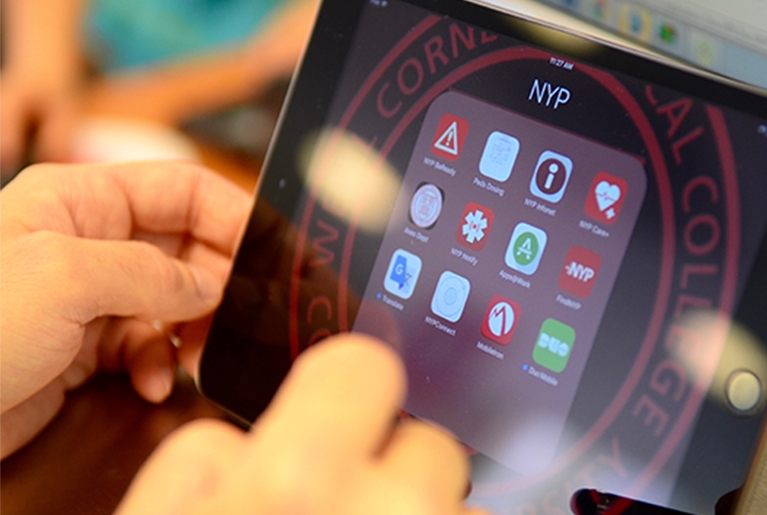The Department of Anesthesiology Residency Program at Weill Cornell Medicine and NewYork-Presbyterian has been recognized as an Apple Distinguished Program for its success in creating a digital learning environment using mobile technology.
The Apple Distinguished Program designation is reserved for programs that meet criteria for innovation, leadership and educational excellence, and demonstrate a clear vision of exemplary learning environments.
Under the leadership of Dr. Kane Pryor, the department’s director of education and its newly-appointed vice chair for academic affairs, the program delivers iPads to all incoming residents. The tablets are configured to provide easy access to the clinical and academic content residents need, including the formal curriculum, now housed in iTunes U; a wealth of digital textbooks and journals from Weill Cornell Medicine’s medical library; and medical resources related to the care of patients.
“Giving them access to this kind of breadth and depth was simply not possible before we made the iPad central to our education,” said Dr. Pryor, an associate professor of clinical anesthesiology and of anesthesiology in clinical psychiatry at Weill Cornell Medicine, and an anesthesiologist at NewYork-Presbyterian.
For Dr. Pryor, the digital learning program grew out of a desire to re-imagine the education curriculum in a way that would resonate with residents, and be relevant to the ways they consume information.
“Our learners are millennials, and they are the product of a millennial education,” he said. “They’re using mobile digital technology in every aspect of their lives — it is the dominant platform for how they interact with information and learn about the world. And the opportunities that technology provides are tremendous. We are trying to bring their specialty education out of the past, and into the information environment in which they live.”
Another key element of the program is Slack, a messaging and communications app for teams. The app enables faculty to share links to new research and other important educational resources with residents through their smartphones.
Since introducing the digital curriculum in 2014, the residency program has seen a dramatic increase in test scores on the American Board of Anesthesiology’s annual exam, Dr. Pryor said. And he said residents note feeling more engaged: overall satisfaction scores reported in the program's yearly questionnaire have nearly doubled.

